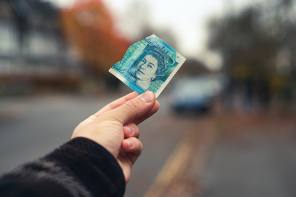

Retired households are paying an average of £6,500 a year in direct and indirect taxes, a figure which could be set to rise following the recent pension reforms, according to analysis by Prudential.
Working off the latest Office of National Statistics data from the 2012-13 tax year, the provider found a year-on-year increase in the average income of a retired household of nearly £500 a year to £21,800.
However, the amount being paid in tax by retired households has also increased, and pensioners are still handing over 30 per cent of their total income to the revenue. In total, £47.3bn, based on a retired population of 7.23m households, was paid in taxes by those who are retired in 2012-13.
Prudential argued that since the April at-retirement changes, this figure looks set to rise as over-55s are able to access the money they have saved in defined contribution pensions, much of which will be liable to tax at the marginal rate.
The Treasury estimated after last year’s Budget that the new rules would generate £320m in additional revenue during the 2015-16 tax year, rising to £1.22bn by 2018-19, underlining the need for people approaching retirement to factor tax into their financial planning.
Stan Russell, senior business development manager for pensions at Prudential, warned there is a risk that people could end up paying more tax than they expected which, with careful planning, they might be able to avoid.
The firm’s analysis of the 2012-13 data also highlighted a slight shift in the balance of taxation between direct and indirect faced by retired households.
Indirect taxes - including VAT, vehicle excise duty and tax on alcohol and petrol - accounted for 60.2 per cent of retired households’ average annual tax bill, up from 58.7 per cent in 2011-12. Direct taxes - including income tax and council tax - accounted for the rest.
On average, retired households paid £3,900 in indirect tax and £2,600 in direct tax. The biggest single tax item is VAT, which accounts for 8.2 per cent of the average retired household’s income, up from 7.8 per cent in 2011-12, while income tax is next on the list with 7.4 per cent of retired household income, down from 7.8 per cent in 2011-12.
Mr Russell added: “Retired households make a major contribution to the Exchequer every year whether it is in direct or indirect taxes and clearly it is not possible to avoid all taxes simply because you have stopped working. It’s a stark reminder that not all the income you receive in retirement will be yours to spend as you like.
“Irrespective of the new pension rules and their tax implications, the fundamental principles remain true - the best way to secure enough income for a comfortable retirement is to save as much as possible as early as possible in your working life.”
peter.walker@ft.com



